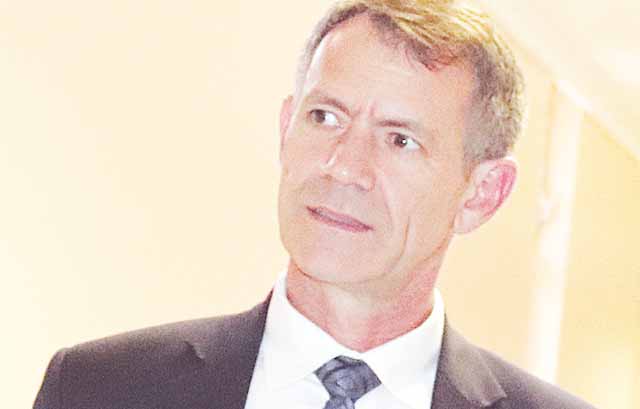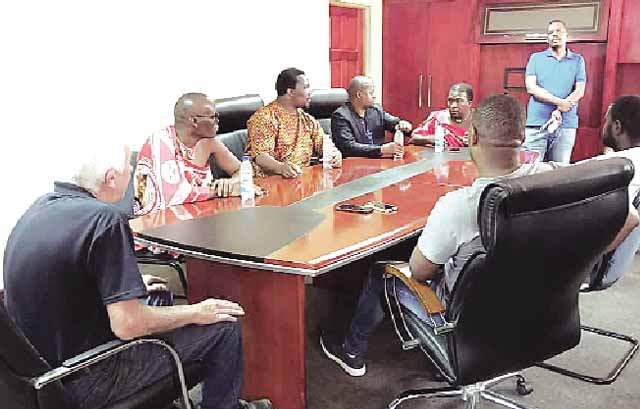By Sibusiso Ngubane (Information Centre Manager) | 2024-11-22
Every year, the global community comes together for 16 Days of Activism against gender-based violence, a campaign that underscores the prevalent issue of violence against women and girls worldwide.
This period, which runs from November 25 to December 10, seeks to raise awareness and motive action to end violence against women and girls.
The campaign coincides with World AIDS Day on December 1, presenting a unique opportunity to draw attention to the intersecting challenges of gender-based violence and HIV/AIDS
Both issues excessively affect women and girls, often driven by similar systemic inequalities and social norms.
By commemorating these events together, we emphasise the need for comprehensive approaches that address both violence and health inequities.
As we embark on these 16 days, we reflect on the progress made and the work still to be done, advocating for a future where every individual can live free from violence and disease.
In Eswatini, these annual events not only honour those affected by gender-based violence and HIV/AIDS but also unite communities in a shared commitment to foster change.
Platforms
These two campaigns are interconnected and both initiatives serve as platforms to amplify voices, raise awareness, and stimulate action against two profound societal challenges which are gender-based violence and the ongoing battle against HIV/AIDS.
It is worrying that every other day in the country, one’s attention is always drawn to newspaper headlines of women who have been allegedly abused or killed by their partners with the latest one reported on Wednesday, November 20, 2024, where a boyfriend allegedly stabbed to death a 32-year-old woman allegedly over cheating claims.
This is a serious cause for concern as women and children often bear the brunt of GBV, with systemic inequalities and cultural norms perpetuating these injustices.
There is really a need synchronize GBV activism with World AIDS Day to underscore the urgent need to address the factors contributing to the HIV epidemic: stigma, discrimination and violence.
Gender-based violence and gender inequality are key drivers in the HIV epidemic and without addressing GBV, the world cannot meet global commitments to achieve gender equality and empower women and girls, ensure all people enjoy safe and health lives and end AIDS by 2030.
The period of the 16 days of activism against GBV is strategically chosen to emphasise that gender-based violence is not just a "women's issue." It is a human rights concern that demands the attention and action of every individual.
Campaign
The campaign calls on governments, organisations and communities worldwide to unite in eliminating violence against women and children. This year’s World AIDS Day theme ‘Take the rights Path’ which puts emphasises on protecting everyone’s rights if the world is to end AIDS as a public health threat by 2030, aligns well with the fight against GBV because perpetrators always violate the survivors’ rights. If we are to end AIDS, we must also end GBV.
Efforts to combat HIV/ AIDS must incorporate strategies to reduce GBV, advocating for legal and social changes to empower women and protect vulnerable populations.
This includes education programmes emphasising consent and gender equality, improved healthcare access for survivors and community outreach to shift societal norms.
By addressing the intersection of GBV and HIV/ AIDS, we take significant strides toward a future where both are eradicated, fostering healthier, more equitable societies.
This dual fight necessitates an integrated response that addresses the underlying cultural, social and economic factors that perpetuate both issues.
In many communities, the intersectionality of gender, health and rights offers a pathway for comprehensive intervention strategies. Prevention programmes that focus on education, empowerment and the transformation of societal norms are crucial.
Initiatives such as community-based workshops, survivor support systems and advocacy campaigns offer pathways to reduce vulnerabilities and create safer environments for all.
Various organisations, both governmental and non-governmental, are spearheading initiatives to raise awareness and foster community engagement.
Workshops, educational programmes, and community dialogues have been organised to challenge stereotypes, educate the public and advocate for legal reforms empowering survivors.
The call by organisations such as SWAGAA, 1 billion Rising and others for the declaration of GBVas a national disaster remains loud and it is justified given the number of lives that have been lost and continue to be lost at the hands of perpetrators of gender-based violence.
While some lose their lives others are infected with HIVand they end up taking treatment for the rest of their lives.
GBV remains one of the drivers of new HIV infection in the country as outlined in the characteristics of the 10 tinkhundla with high new HIV infections according to the 2020 EHRIS report.
The country has made significant progress in the fight against HIV/AIDS achieving the 95-95-95 UNAIDS global targets on HIVprevention and treatment ahead of time.
The country risks reversing these gains if GBV as one of the drivers of new infections is not addressed urgently.
As Eswatini moves through these 16 days, the red ribbons of World AIDS Day serve as a poignant reminder of the lives lost and the lives still at risk.
Commitment
They symbolise a commitment not just to remember but improving protections for those vulnerable to violence and reducing the spread of HIV.
While significant strides have been made, the road ahead remains challenging. Structural changes, policy implementation and continuous education are necessary steps.
This dual observance of World AIDS Day and the 16 Days of Activism represents a critical opportunity for Eswatini to re-affirm its commitment to justice and health for all its citizens.
In examining the complex link between HIV and gender-based violence, it's evident that this connection creates a cycle that is both destructive and pervasive. Gender-based violence significantly increases the vulnerability of individuals, especially women and marginalized groups, to HIV.
This violence, often rooted in systemic issues such as inequality and discrimination, not only heightens the risk of transmission but also imposes barriers to accessing healthcare and support services. Conversely, a positive HIV diagnosis can exacerbate instances of violence, further marginalising those affected.
share story
Post Your Comments Below
SOCCER - MAJOR coup!
Former South African Football Coaches Association (SAFCA) Head of Techn...

SOCCER - THE missing piece in the puzzle is set to take action!
This comes after the ministr...

As the nation eagerly anticipates the upcoming 2025/26 national budget scheduled for delivery in ...

ABOUT 100 government vehicles, which developed mechanical faults are ‘rotting’ at Mat...
All material © Swazi Observer. Material may not be published or reproduced in any form without prior written permission.
Design by Real Image Internet